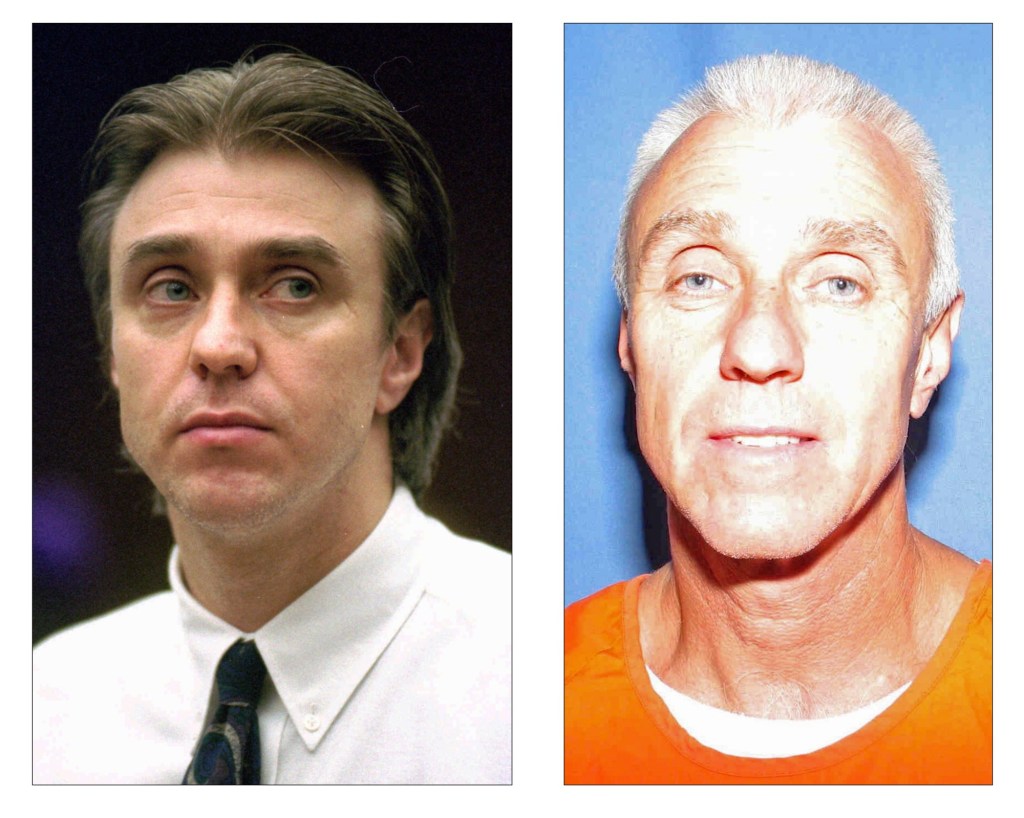A man dubbed the Pacific Beach Rapist, who sneaked into homes and sexually assaulted seven San Diego women at knifepoint in the early 1990s, lost his bid Wednesday to be released from prison.
Although Kenneth Bogard, 67, has served less than a third of his nearly 97-year sentence, changes in the state law over the last decade made him eligible for potential parole due to his age and the amount of time he has already served.
RELATED: Pillowcase Rapist to be freed under Santa Clara County judge’s ruling
But after a roughly 2½-hour hearing Wednesday, two hearing officers from the state parole board found he was not suitable for release.
“We find that your release could pose an unreasonable risk to the public,” said Board of Parole Hearings Commissioner Catherine Purcell, who made the decision alongside Deputy Commissioner Gary Shinaver.
The pair said Bogard will have to wait three years for his next chance at parole.
Deputy District Attorney John Cross had pressed the board to make Bogard wait five years, calling him “one of the worst rapists in the history of San Diego.”
“He has not changed. He is still in denial,” Cross argued.
The assailant known as the Pacific Beach Rapist (although some of the attacks were in the College Area) terrorized the community, sneaking in through unlocked doors or open windows during his 14-month spree. Many of his victims woke up to find him in their homes. He spoke as if he knew them. Sometimes, when he left, he tucked them into bed or reminded them to lock their doors.
DNA helped lead authorities to Bogard, who already had arrests for taking video from underneath women’s skirts and for public masturbation. When he was arrested in 1994, his identity was a surprise — Bogard was the leader of the popular local party band Dr. Chico’s Island Sounds. The following year, a San Diego jury found him guilty of 37 felonies, including rape.
Bogard was sentenced to 96 years and eight months for the attacks. Currently housed at a prison in Salinas Valley, he has served 30 years.
A decade ago, a federal court order designed to reduce California’s overpopulated prisons made parole consideration eligible for some inmates who had reached age 60 and had served 25 years of their sentence — and that is how Bogard initially qualified for his first unsuccessful bid for parole in 2019. In 2021, California made parole consideration available to some inmates over the age of 50 who have served at least 20 years of their sentence. It is known as “elder parole.”
In issuing the parole denial Wednesday, Purcell pointed to several factors, including a professional assessment that he is a moderate risk of reoffending.
Purcell said Bogard had not internalized teachings from prison programs designed for sex offenders.
“We have little confidence that you truly understand, have thought about, and have a full awareness of … why you committed your crimes,” Purcell said.
At his sentencing hearing in 1995, Bogard blamed his behavior on being “a sex addict.” On Wednesday, he continued to assert he is a sex addict.
The commissioner pushed back on Bogard’s claim, noting it is self-diagnosed. She said his “legitimate diagnoses made by professionals” are paraphilic disorder with non-consenting adults, voyeurism and exhibitionism.
She also pointed to his denial during the hearing that he saw fear in any of his victims — some of whom reported screaming, struggling or crying. That denial, she said, “tells this panel that you are minimizing and in denial and engaged in criminal thinking.”


















































